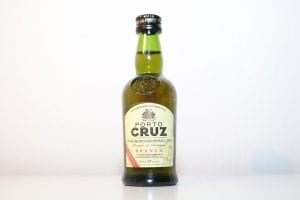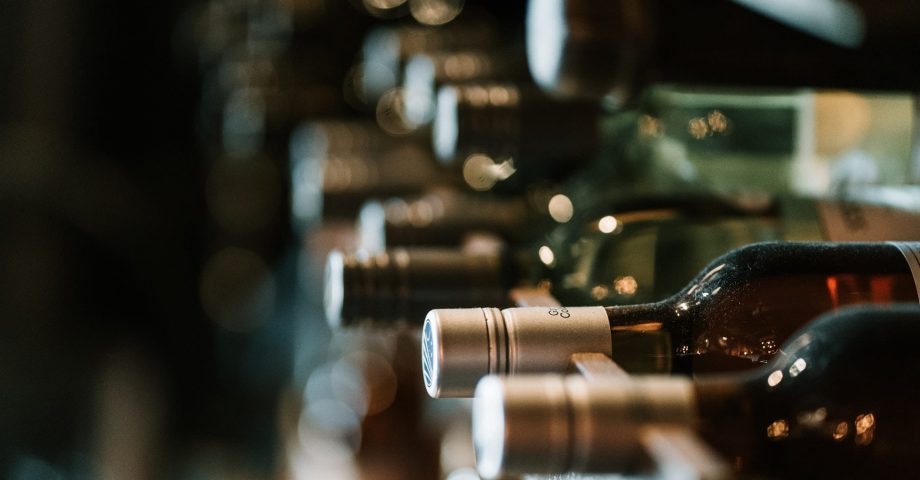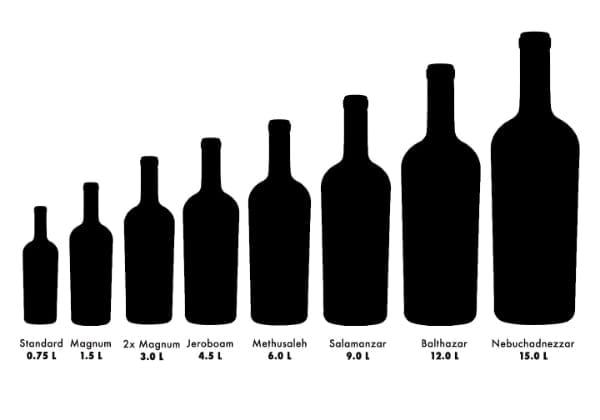We’ve been producing wine for approximately 9,000 years, and the Middle East is believed to be the location of the earliest vineyards. The French, who became interested, started copying the winemaking process and is often credited for inventing wine. Here are some fun wine facts you’ll wish you knew earlier!
1. Wine: There’s a gender debate!
Men are less inclined to the effects of wine compared to women. This is primarily because women have fewer enzymes in their stomach lining which is required to break down the alcohol.
2. Some wine is truly ancient.
On display in a German museum, the oldest bottle of wine is nearly 1700 years old.
3. There’s a ‘right way’ to store wine.
It is always advised to not keep your wine bottle standing up, but rather have them laying down. This is because the cork can dry, shrink and there is a potential for oxygen to get into the bottle if you have it standing up.

4. There are weird ways to make wine.
Better wine is actually produced by poor-quality soil.
5. There’s such a thing as ‘wine terminology’.
While a mature wine offers a subtle “bouquet”, the smell of young wine is known as “aroma”.
6. Wine is very, VERY fruity!
A single bottle of wine contains approximately 1.27kg or 600 grapes.
7. Some people are scared of wine.
Oenophobia is the name given for hatred or fear of wine.
8. Is wine healthy?
Wine is free of cholesterol and fat.
9. There’s wine under the sea.
Despite the wreckage and depth of the Titanic, it holds the oldest wine cellar on the planet. The bottles are still intact!

10. Chilling wine is an art form.
You can chill Champagne or white wine faster by putting ice or salt in the bucket.
11. Romans created many wine traditions.
“Cheers”, the custom of bumping glasses, is derived from Ancient Rome. They used this method to ensure that no one is trying to poison anyone, as bumping the glasses made the drink spill and transfer from one glass to another. This method can also be dated back to ancient Greece, where the host was required to drink the first cup of wine to prove that he does not intend to poison his guests. This is where “drinking to one’s health” derives from.
12. Check your gums!
There is more alcohol contained in a mouthwash than there is in wine.

13. Wine is swimmable.
There is a spa in Japan that allows you to swim in wine, tea, and coffee.
14. There’s a ‘wine triangle’.
France, Spain, and Italy are the thee largest producers of wine on Earth.
15. There’s a niche for ‘animal labels’.
“Critter wine” is the name given to wine bottles that have animals on the label.

16. Is red or white wine healthier?
Red wines have been widely attributed to positive health benefits when drank in small quantities.
17. Wines can be low-calorie.
Wine, on the whole, is fairly low-calorie per glass. Red wine, for example, is likely only to contain around 125 calories in a standard glass, significantly less than you might expect from beer or cider.
However, calories in wine will differ from type to type. It may also differ from blend to blend and winery to winery, too! For example, white wine is thought to be even lower in calories than red, with around 82 calories expected from an average glass.
18. Wine can be low in sugar.
There’s surprisingly less sugar in a glass of wine than you might expect. There’s around a gram of sugar in an average serving or glass. However, again, this will vary from type to type and blend to blend.

19. Wine and toothpaste share attributes.
Wine is thought to be rich in a variety of nutrients you might not expect to benefit from per glass. For example, it’s a fantastic source of fluoride, which you will generally find in toothpaste.
20. Wine is a superfood!
More interesting is the fact that wine offers you 10% of your daily recommended intake of manganese. Manganese is a powerful antioxidant, which means that it’s a real boost to various bodily systems. Specifically, your brain loves manganese!
21. Too much of a good thing…
Despite wine being a low-calorie choice in alcohol, too much is still likely to be bad for you. Studies show that drinking alcohol too often could result in reliance on additional unhealthy snacks and treats throughout the day. Could wine be a gateway to unhealthy diet choices? It’s possible.

22. You’ll not find calorie details on a wine bottle.
You’ll likely find that it’s rare to see any kind of nutritional information on wine bottle labels. That’s because there is no UK legislation in place to force this to take place. Some wines may list their calories as a selling point if they are particularly low. Otherwise, don’t go looking for information on a bottle of wine if you really want to know the calorific breakdown.
23. Alcohol can cause harm – wine included.
Despite wine’s relatively good points in terms of antioxidant properties and its relatively appealing stats compared to other types of alcohol, it is still alcohol – which could devastate your health if you drink too much of it. It could even cause allergic reactions in some people.
Certainly, the odd glass of wine now and again is unlikely to cause any major harm. However, do pay attention to doctors’ advice, and try to stay within recommended weekly unit levels for your gender.
Fact sheet – wine bottle sizes
| Name | Size (vs standard bottle) | How many glasses | Comments |
|---|---|---|---|
| Split or Piccolo | 1/4 bottle - 187.5 ml | 1 glass of wine | Used for sparkling wines almost exclusively. |
| Half or Demi | 1/2 bottle - 375 ml | 2.5 glasses of wine | Half a standard sized bottle of wine. |
| Half Litre or Jennie | 2/3 bottle - 500 ml | 3 glasses of wine | This bottle style is generally used for Sauternes and other pudding wines. |
| Standard | 1 bottle - 750 ml | 5 glasses of wine | This is the standard size bottle you'll find everywhere. |
| Litre | 1 & 1/3 bottle - 1000 ml | 7 glasses of wine | Most typically used for budget wines. |
| Magnum | 2 bottles - 1500 ml | 10 glasses of wine | Want to make a visual statement at the next party? Bring a magnum. |
| Jeroboam or Double Magnum | 4 bottles - 3000 ml | 20 glasses of wine | Named after the first king of northern Israel. Twice the size of a magnum. |
| Rehoboam | 6 bottles - 4500 ml | 30 glasses of wine | Named after the son of Solomon, these bottles are generally used to bottle larger quantities of Champagne. |
| Methuselah or Imperial | 8 bottles - 6000 ml | 40 glasses of wine | Methuselah is the oldest man named in the bible. |
| Salmanazar | 12 bottles - 9000 ml | 60 glasses of wine | Shalmaneser was the king of Assyria & Babylon (727 to 722 BC) |
| Balthazar | 16 bottles - 12 litres | 80 glasses of wine | Regarded as a saint, Balthazar was The King of Arabia and one of the three wise men that visited the new born Jesus. |
| Nebuchadnezzar | 20 bottles - 15 litres | 100 glasses of wine | Nebuchadnezzar was the longest ruling king of Babylon. |
| Melchior | 24 bottles - 18 litres | 120 glasses of wine | This huge bottle holds the same as 2 cases of wine! |
| Solomon | 26 bottles - 20 litres | 130 glasses of wine | Solomon was the son of King David. |
| Sovereign | 35 bottles - 26 litres | 175 glasses of wine | This 'generous' bottle was made for the 1988 launch of the cruise ship, Sovereign of the Seas by Taittinger. |
| Primat or Goliath | 36 bottles - 27 litres | 180 glasses of wine | A giant bottle, named after the giant that David defeated. |
| Melchizedek or Midas | 40 bottles - 30 litres | 200 glasses of wine | Twice the size of the Nebuchadnezzar, the Melchizedek (or Midas) is the largest wine bottle size, ever. |
 FAQs about Wine
FAQs about Wine
What are wine experts called?
People who specialize in the tastes and smells of wine are known as sommeliers, and they usually work in vineyards or restaurants. Sommeliers have to study and perfect their craft over around six months, but the more experience they have in the field, the better!
What country is the biggest consumer of wine?
As of 2020, the US was named the biggest wine consuming country in the world, having a grand total of 33 hectolitres in 2020!
How long does it take to make a bottle of wine?
Generally speaking, the fermentation period takes about two weeks to complete, which is then followed by a minimum aging process of between two to three weeks.
Do you know any fun wine facts? Share them in the comments below!
Further reading:
https://facts.uk/tag/wine/


 FAQs about Wine
FAQs about Wine







